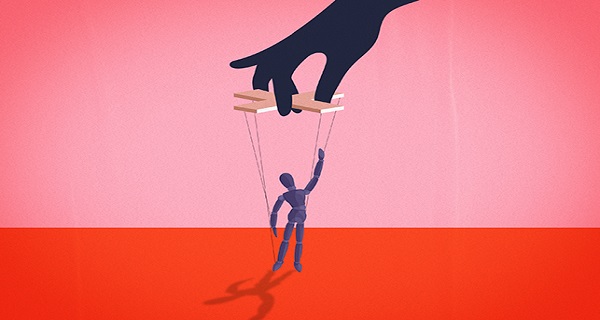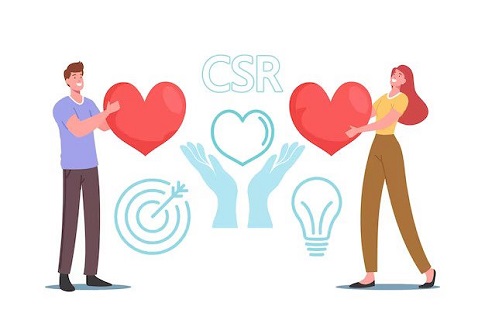The Consequences of Coercion in Relationships: A Morality Story
-
Table of Contents
- Introduction
- The Impact of Coercion on Intimate Relationships: A Moral Tale
- Exploring the Effects of Coercive Control in Relationships: A Moral Dilemma
- The Power of Coercion in Relationships: A Moral Analysis
- Examining the Consequences of Coercive Tactics in Relationships: A Moral Perspective
- Understanding the Impact of Coercion on Relationships: A Moral Exploration
- Conclusion
“Discover the power of choice and the consequences of coercion in relationships – a morality story.”
Introduction
The Consequences of Coercion in Relationships: A Morality Story is a cautionary tale about the dangers of using coercion to control another person in a relationship. It explores the moral implications of using coercion to manipulate and control another person, and the consequences that can arise from such behavior. The story follows the journey of a young couple as they navigate the complexities of their relationship and the power dynamics that arise from coercion. Through this story, readers are encouraged to reflect on their own relationships and consider the implications of using coercion in any form.
The Impact of Coercion on Intimate Relationships: A Moral Tale
We all know that relationships are built on trust and mutual respect. But what happens when one partner uses coercion to control the other?
Coercion is a form of manipulation that involves using threats, intimidation, or other forms of pressure to get someone to do something they don’t want to do. It can be physical, emotional, or psychological.
When it comes to intimate relationships, coercion can have a devastating impact. It can lead to feelings of fear, guilt, and shame. It can also lead to a lack of trust and communication, which can cause the relationship to deteriorate.
At its worst, coercion can lead to physical and emotional abuse. It can also lead to a cycle of violence, where one partner is constantly trying to control the other.
The moral of this story is clear: coercion has no place in a healthy relationship. If you or someone you know is in a relationship where coercion is present, it’s important to seek help. There are resources available to help you get out of an abusive situation and start living a life free from fear and intimidation.
No one deserves to be treated this way. It’s time to take a stand against coercion and create relationships based on mutual respect and trust.
Exploring the Effects of Coercive Control in Relationships: A Moral Dilemma

Exploring the effects of coercive control in relationships can be a difficult and emotional journey. It can be a moral dilemma, as it can be hard to know what is right and wrong in such a complex situation.
Coercive control is a form of abuse that is often used to manipulate and control another person. It can involve a range of tactics, such as threats, humiliation, isolation, and financial control. It can be difficult to recognize, as it can be subtle and insidious.
The effects of coercive control can be devastating. It can lead to feelings of fear, guilt, and shame. It can also lead to physical and psychological harm. Victims of coercive control often feel trapped and powerless.
It is important to remember that coercive control is never acceptable. It is a violation of human rights and can have serious consequences. It is important to recognize the signs of coercive control and to seek help if you or someone you know is in an abusive relationship.
It can be difficult to know what to do when faced with a moral dilemma such as coercive control in relationships. It is important to remember that everyone has the right to be safe and respected. It is also important to remember that coercive control is never acceptable and that it is important to seek help if you or someone you know is in an abusive relationship.
The Power of Coercion in Relationships: A Moral Analysis
When it comes to relationships, coercion can be a powerful tool. It can be used to manipulate, control, and even harm another person. But is it ever morally acceptable to use coercion in a relationship?
The answer to this question depends on the context and the intentions of the person using coercion. In some cases, coercion can be used to protect someone from harm or to ensure that a person is making a decision that is in their best interest. For example, a parent may use coercion to ensure that their child is not engaging in risky behavior.
However, coercion can also be used to manipulate and control another person. This type of coercion is never morally acceptable. It is a form of abuse and can lead to serious psychological and emotional harm.
Ultimately, it is important to remember that relationships should be based on mutual respect and trust. Coercion should never be used as a way to control or manipulate another person. If you find yourself in a situation where you feel like you are being coerced, it is important to speak up and seek help.
Examining the Consequences of Coercive Tactics in Relationships: A Moral Perspective
When it comes to relationships, it is important to recognize that coercive tactics can have serious consequences. Coercive tactics are any behaviors that are used to manipulate or control another person, such as threats, intimidation, or emotional blackmail. These tactics can be damaging to relationships, as they can lead to feelings of fear, guilt, and powerlessness.
From a moral perspective, coercive tactics are wrong and should not be used in relationships. They are a form of manipulation and control, which can lead to a lack of trust and respect. Coercive tactics can also lead to a breakdown in communication, as one partner may be too afraid to speak up or express their feelings. This can lead to a lack of understanding and connection between partners, which can ultimately lead to the breakdown of the relationship.
The use of coercive tactics can also have long-term psychological effects. Victims of coercive tactics may experience feelings of anxiety, depression, and low self-esteem. They may also struggle to trust others and form healthy relationships in the future.
It is important to remember that relationships should be based on mutual respect and understanding. Coercive tactics are not acceptable and should not be used in any relationship. If you or someone you know is in a relationship where coercive tactics are being used, it is important to seek help. There are many resources available to help people in unhealthy relationships, and it is important to take advantage of them.
Understanding the Impact of Coercion on Relationships: A Moral Exploration
When it comes to relationships, coercion can have a devastating impact. It can lead to feelings of betrayal, mistrust, and resentment, and can even cause a relationship to break down completely. But what is coercion, and why does it have such a negative effect on relationships?
Coercion is the use of force, threats, or manipulation to get someone to do something they don’t want to do. It’s a form of control that can be used to manipulate and exploit someone, and it’s never okay. Coercion can take many forms, from physical violence to emotional manipulation. No matter what form it takes, it’s wrong and it’s damaging to relationships.
When someone is coerced into doing something, it can lead to feelings of betrayal and mistrust. The person who was coerced may feel like their partner doesn’t respect them or their wishes, and this can lead to resentment and anger. It can also lead to a breakdown in communication, as the person who was coerced may be too afraid or embarrassed to talk about what happened.
Coercion can also lead to a lack of trust in the relationship. If someone has been coerced into doing something, they may not be able to trust their partner anymore. They may feel like their partner is not looking out for their best interests, and this can lead to a breakdown in the relationship.
At its core, coercion is a moral issue. It’s wrong to use force, threats, or manipulation to get someone to do something they don’t want to do. It’s important to remember that relationships should be based on mutual respect and trust, and coercion has no place in a healthy relationship.
If you or someone you know is in a relationship where coercion is present, it’s important to seek help. Talk to a trusted friend or family member, or reach out to a professional for support. Remember, you are not alone and there is help available.
Conclusion
The Consequences of Coercion in Relationships: A Morality Story serves as a powerful reminder of the importance of respect and consent in relationships. It highlights the devastating effects of coercive behavior and the need for individuals to be aware of their own boundaries and those of their partners. Coercion can lead to serious physical, emotional, and psychological harm, and it is essential that we all take steps to ensure that our relationships are based on mutual respect and understanding.
Related
Related Posts
-
 The Danger of Jealousy in Romantic Relationships: A Cautionary Tale
No Comments | Feb 25, 2023
The Danger of Jealousy in Romantic Relationships: A Cautionary Tale
No Comments | Feb 25, 2023 -
 The Virtue of Honesty: A Morality Story of Integrity and Transparency
No Comments | Feb 25, 2023
The Virtue of Honesty: A Morality Story of Integrity and Transparency
No Comments | Feb 25, 2023 -
 The Virtue of Accountability in Taking Responsibility for Relationship Actions
No Comments | Feb 25, 2023
The Virtue of Accountability in Taking Responsibility for Relationship Actions
No Comments | Feb 25, 2023 -
 The Power of Love: Brazilian Man’s Dedication to His Unresponsive Wife
No Comments | Sep 13, 2023
The Power of Love: Brazilian Man’s Dedication to His Unresponsive Wife
No Comments | Sep 13, 2023
